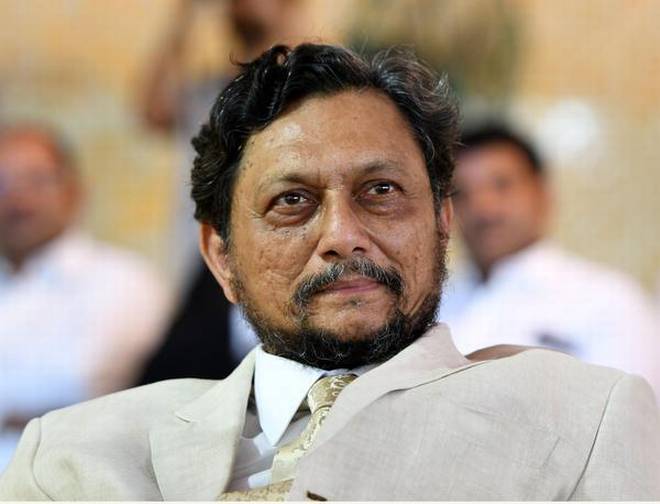
How to address judges? ‘My Lord’? ‘Your Honour’? Here's what SC says
What is the correct protocol when it comes to addressing judges in Indian courtrooms? If, like most Indians, you have never seen the inside of a court, you could be forgiven for taking a leaf out of Bollywood’s book and going with ‘My Lord’ - remember the ‘Tarik Pe Tarik’ scene from Damini? - or ‘Your Honour’

What is the correct protocol when it comes to addressing judges in Indian courtrooms? If, like most Indians, you have never seen the inside of a court, you could be forgiven for taking a leaf out of Bollywood’s book and going with ‘My Lord’ — remember the ‘Tarik Pe Tarik’ scene from Damini? — or ‘Your Honour’.
The subject of court etiquette once again made news on Tuesday (February 23) after a Supreme Court bench headed by Chief Justice (CJI) SA Bobde objected to a petitioner’s use of ‘Your Honour’.
The CJI sharply told the petitioner, a law student, that was he was not addressing the Supreme Court of United States, but the Supreme Court of India.
“When you call us ‘Your Honour’, you either have the Supreme Court of United States or the Magistrate in mind. We are neither,” CJI Bobde said.
The student apologised and said that he would henceforth use ‘My Lords’. “Whatever. We are not particular what you call us. But don’t use incorrect terms,” came the reply.
According to a report in The Indian Express, this was not the first time the CJI had taken exception to being addressed as ‘Your Honour’. In August 2020 he had asked another petitioner whether he was appearing before the US Supreme Court.
Colonial Salutations
As with many other practices, India inherited courtroom etiquettes from the British. In other words, they are a relic of colonial rule. In the UK, judges of the Court of Appeals and the High Court are addressed as ‘My Lord’ or ‘My Lady’; Circuit judges as ‘Your Honour’; Magistrates as ‘Your Worship’, or ‘Sir’ or ‘Madam’; and District judges and Tribunal judges as ‘Sir’ or ‘Madam’.
Bar Council of India Rules
The Bar Council of India makes the rules on professional standards to be observed by advocates. To address this issue, a Resolution by the BCI in 2006 added Chapter IIIA to Part VI of the Rules. The provision and its explanation read as follows:
“CHAPTER-IIIA3: To address the Court
Consistent with the obligation of the Bar to show a respectful attitude towards the Court and bearing in mind the dignity of Judicial Office, the form of address to be adopted whether in the Supreme Court, High Courts or Subordinate Courts should be as follows: ‘Your Honour’ or ‘Hon’ble Court’ in Supreme Court & High Courts and in the Subordinate Courts and Tribunals it is open to the Lawyers to address the Court as ‘Sir’ or the equivalent word in respective regional languages.”
A Matter of Confusion?
So the Bar Council discourages the use of ‘My Lord’ and ‘Your Lordship’, but prescribes ‘Your Honour’ or ‘Hon’ble Court’ as an acceptable way to address the Supreme Court and High Courts, and ‘Sir’ in Subordinate Courts and Tribunals?
According to The Indian Express, the BCI issued a statement on Tuesday, saying that it had passed a resolution in 2019 advising advocates not to use it in High Courts and in the top court to maintain the “graciousness and dignity” of the court. “It is not clear if the Rules had been amended in line with the resolution,” the newspaper said.
“The BCI would like to clarify that as far as back on 28th September, 2019 on the request made by Office-Bearers of Bar Association of some High Courts with regard to the Advocates addressing the court, it was resolved that as per mostly preferred and prevalent practice, lawyers of the country be requested to address the Hon’ble Judges of various High Courts and Supreme Court as ‘My Lord’ or ‘Your Lordships’ or ‘Hon’ble Court’, while Lawyers of Subordinate Courts, Tribunals and other Forums may address the Court as ‘Your Honour’ or ‘Sir’ or the equivalent word in respective regional languages,” BCI chairperson Manan Mishra said in a statement.
2014 PIL
In 2014 a 75-year-old advocate named Shiv Sagar Tiwari filed a PIL in the Supreme Court for banning the use of terms such as ‘My Lord’.
Hearing his plea, the court observed that judges should be addressed in a respectful and dignified manner and it is not compulsory to call them ‘My Lord’, ‘Your Lordship’ or ‘Your Honour’.
“When did we say it is compulsory. You can only call us in a dignified manner,” a bench comprising justices HL Dattu and SA Bobde observed.
“To address the court what do we want. Only a respectable way of addressing. You call [judges] Sir, it is accepted. You call it Your Honour, it is accepted. You call Lordship it is accepted. These are some of the appropriate way of expression which are accepted,” it said.

